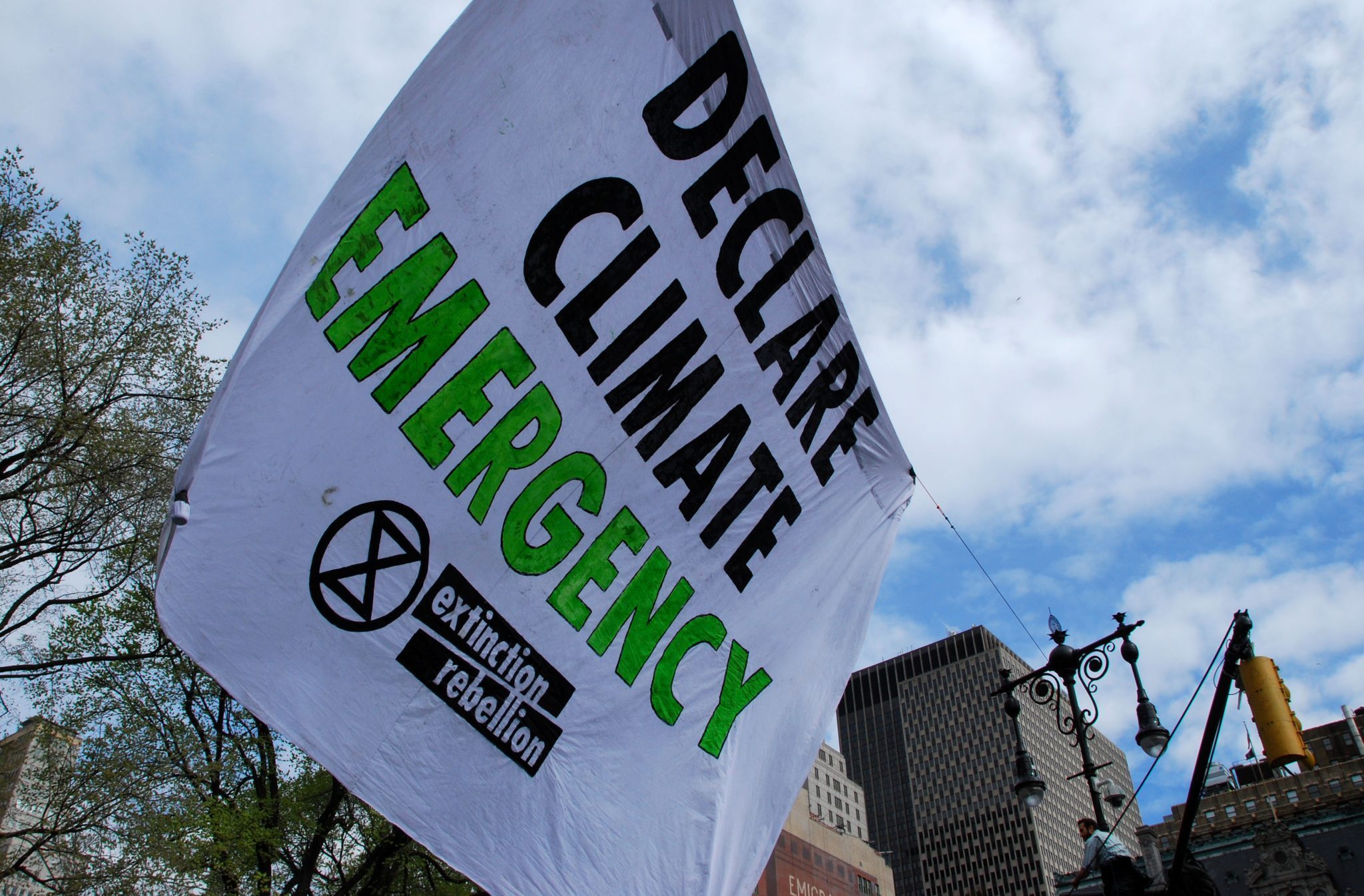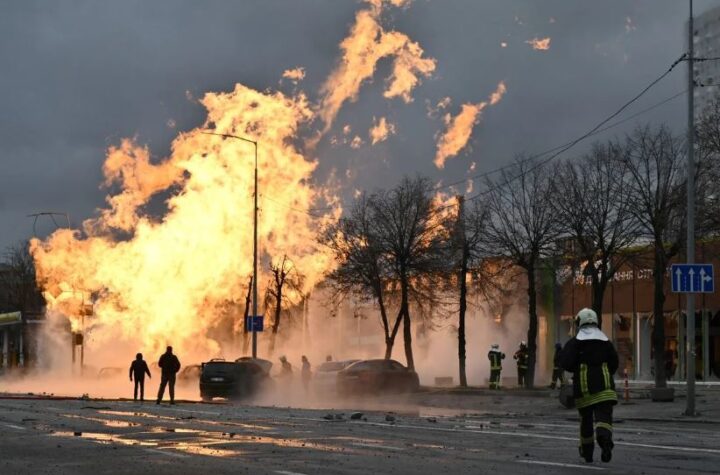
Congratulatory cheer abounds as various bodies are declaring a climate emergency. This is not to be decried or belittled – it speaks to a shift in another climate, that of public opinion. Extinction Rebellion deserve much praise for this – their inspired campaigning has hit pitch perfect notes of urgency, relative militancy and non-violence.
It is important that campaigners have moments that lift morale – Lord knows there have been precious few of those in recent decades so everyone can rightly take a moment to celebrate a job well done.
Once the bubbles have departed the climate emergency fizz though (which they will soon enough), the really hard work will begin. There is a reason why political bodies and politicians embrace declarations of this kind:
(a) It gains them some popularity – their lifeblood. Never underestimate the mendacity, shallowness and short-term thinking of the political / media establishment – they operate from week to week and will promise anything.
(b) It doesn’t commit them to anything specific or anything with a deadline for implementation.
(c) They take the place of more troubling choices that will cost popularity.
The situation is directly analogous to the Yes Minister episode ‘Bed Of Nails’ in which the hapless Jim Hacker unwisely commits his department to implementing a national integrated transport policy. In explaining why accepting the job was a disastrous idea, his civil service flunkey Humphrey Appleby put it succinctly:
“formulating policy means making choices, once you do that, you please the people you favour but infuriate everybody else – one vote gained…ten lost”
Politicians fear that REAL action on climate change is the ULTIMATE vote loser – five votes gained and a hundred lost. Many people have a low opinion of politicians – it rarely occurs to people that they might have much a lower opinion of us.
In discussion with Extinction Rebellion Labour would not shift even the target for zero emissions forward to 2030 – that might commit them to doing something specific now. There was much warm noise in parliament about tackling climate change – but such posturing is worth little, it speaks to no specific policy proposal that might upset any defined constituency of self interest.
Politicians think in election cycles – not climate cycles and trends, they avoid standing next to anything that might upset anybody. Similarly the corporate media are defenders of the status quo – when they report sympathetically about Extinction Rebellion and declaring climate emergencies you can be sure that no important feathers are being ruffled.
The real work of tackling climate change lies ahead – what restrictions of consumer agency and licence are we willing to make? Who will insist that these hard choices are made? Which constituencies will lose out and who decides how it will be done?
Take one example: Ryanair. Low hanging fruit for climate action surely – or is it? Ryanair are one of Europe’s top ten polluters, they provide no essential service – they are a budget carrier facilitating cheap holidays, stag nights in far away capitals, city breaks, environmentally disastrous commuting and family get togethers. If we are serious about this oft declared climate emergency, we really should close Ryanair and by extension all non-essential air travel and freight (which is virtually all of it).
Ryanair directly employs 13,000 people, Easyjet 12,280, Alitalia 12,013, British Airways 45,000, Lufthansa 129,424. Over 10 million work directly in support of aviation. Millions more work indirectly, travel agent Expedia employs 20,000. In the EU alone 13 million work in tourism. Countless local economic systems depend on cheap air travel – Air BnB has hosted over 400 million guests in eleven years.
What politician will draft policy banning leisure air travel and cruises? Can you imagine any party (even the Green Party) doing this? Those thrown out of work or bankrupted will be outraged – wouldn’t you be in their place? They won’t all be able to get new jobs making solar panels the next day.
This is just a tiny fraction of the landscape of realpolitik that Extinction Rebellion are asking politicians to traverse – no wonder the establishment is delighted to declare climate emergencies instead.
By all means celebrate that a climate emergency was debated and passed in parliament – but we should not let the bubbles go up our noses for too long.





Do agree I can’t see the tories do anything but there are opportunities for Labour apart from the moral high ground.
A decent green deal, the original basis of the one the tories scrapped was that the repayments for retrofitting would be matched by the reduction in heating costs, I don’t think that works in the real world even if you aren’t charged the intended 9% interest, but people will get much more comfortable houses and lower costs.
Regarding flights and cars – give everybody an annual co2 allowance, most people / voters only go for an annual short haul if that, if you want to go further or frequently you buy “miles” or “gallons” from those who choose not or can’t afford to use their allowance, this might include one long haul every few years for those with relations in Oz for example. I can’t remember the exact figures but something like 75 % of flights are taken by the well off, make them pay and share the wealth.
Another angle is replacing fossil fuels with Hydrogen, actual Hydrogen is tricky to transport but Ammonia or NH3 is easier and has a greater energy density, it has historically been made from hydrocarbons but now can be made in smaller scale plants from water and powered by renewable energy, so if you’re a dirt poor country with nothing but desert and scrub now’s your chance.
They’re working on how to retrofit mega cargo ships to run on ammonia and also planes and cars.
There are opportunities to make real positive social change, personally I’d go further and back major cutbacks on agriculture – no intensive dairy or pig farms,free range only for chickens, and organic for all.
We are facing a crescendo of catastrophes orchestrated by the economists who fail to recognise that the planet we live on is finite.
We already vastly exceed the planet’s capacity to absorb CO2 which is why we have global warming, but in addition we are within a few years of losing all soil needed for crops and are close to poisoning land and sea with pollutants.
Yet we continue to base our future hopes on increasing the economic activity that causes this destruction. Wrecking the planet can only be halted by reducing economic activity by adopting a different standard of living based on consuming about 50 % less than we do at the moment.
And there is no precedent for such a change being made without the threat of a war to enable an authoritarian rule to direct matters, but it can be done.